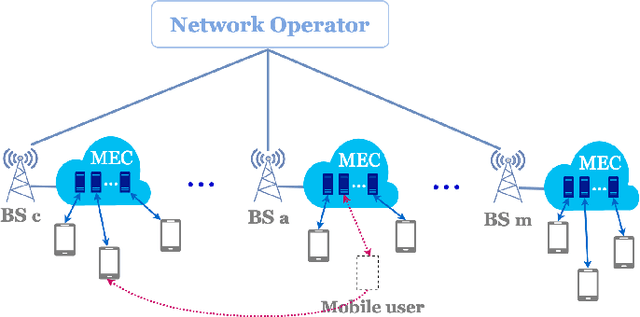Follow Me at the Edge: Mobility-Aware Dynamic Service Placement for Mobile Edge Computing
Paper and Code
Sep 14, 2018



Mobile edge computing is a new computing paradigm, which pushes cloud computing capabilities away from the centralized cloud to the network edge. However, with the sinking of computing capabilities, the new challenge incurred by user mobility arises: since end-users typically move erratically, the services should be dynamically migrated among multiple edges to maintain the service performance, i.e., user-perceived latency. Tackling this problem is non-trivial since frequent service migration would greatly increase the operational cost. To address this challenge in terms of the performance-cost trade-off, in this paper we study the mobile edge service performance optimization problem under long-term cost budget constraint. To address user mobility which is typically unpredictable, we apply Lyapunov optimization to decompose the long-term optimization problem into a series of real-time optimization problems which do not require a priori knowledge such as user mobility. As the decomposed problem is NP-hard, we first design an approximation algorithm based on Markov approximation to seek a near-optimal solution. To make our solution scalable and amenable to future 5G application scenario with large-scale user devices, we further propose a distributed approximation scheme with greatly reduced time complexity, based on the technique of best response update. Rigorous theoretical analysis and extensive evaluations demonstrate the efficacy of the proposed centralized and distributed schemes.
 Add to Chrome
Add to Chrome Add to Firefox
Add to Firefox Add to Edge
Add to Edge